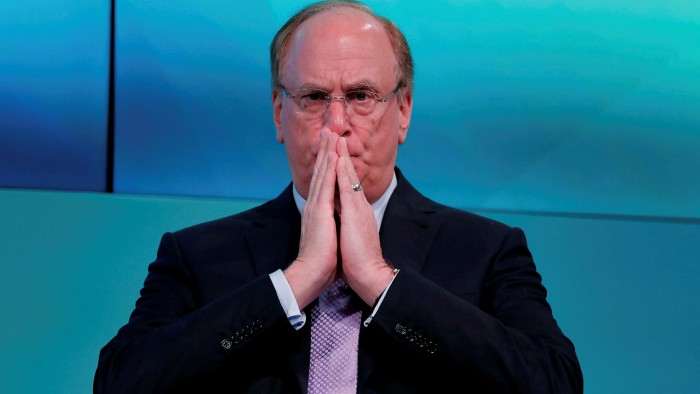BlackRock funds hit by $17bn in losses on Russian exposure

Roula Khalaf, Editor of the FT, selects her favourite stories in this weekly newsletter.
BlackRock, the world’s largest asset manager, has taken about $17bn in losses on its Russian securities holdings because of the attack on Ukraine.
Clients held more than $18.2bn in Russian assets at the end of January, the firm said, but shuttered markets and worldwide sanctions imposed after Russian president Vladimir Putin invaded Ukraine have made the vast majority unsaleable, leading BlackRock to mark them down sharply.
The firm suspended all purchases of Russian assets on February 28 and disclosed at that time that its holdings related to the country had fallen to less than 0.01 per cent of assets under management. A BlackRock spokesperson said the total value was around $1bn on February 28, when markets were effectively frozen, and the change was because of markdowns rather than asset sales.
The enormous value destruction reflects both BlackRock’s scale — it has more than $10tn in assets under management — and the damage that the Russian invasion of Ukraine has wreaked on the wider financial system.
Other large asset managers are also having to write down billions of dollars in exposure. Pimco, for example, held at least $1.5bn of sovereign debt and about $1.1bn of bets on Russia via the credit-default swap market before the war. Ashmore and Western Assets funds also have exposure to Russian debt, according to Morningstar, as does Janus Henderson at a much lower level.
US banks Goldman Sachs and JPMorgan announced plans on Thursday to pull their businesses out of Russia, saying they were acting in compliance with government instructions.
Larry Fink, BlackRock’s chief executive, said in a LinkedIn post after the markdowns that “this has been a highly complex and fluid situation, and BlackRock will continue actively consulting with regulators, index providers and other market participants to help ensure our clients can exit their positions in Russian securities, whenever and wherever regulatory and market conditions allow”.
BlackRock declined to give a breakdown of its Russian securities or detail exactly which funds have taken what losses.
But the asset manager has marked down the value of its largest Russian exchange traded fund, ERUS, from about $600mn at the end of last year to a total value of less than $1mn. It has suspended trading and waived the management fees on all of its Russian ETFs as well as an emerging Europe fund that was heavily exposed to Russia. That fund had a net asset value of €622mn at the end of January, but has been marked down to €269mn.
If tensions and sanctions ease, Russian securities could start trading more freely again and recover some of their value. In that scenario, BlackRock’s funds and clients could benefit as prices recover.

Comments